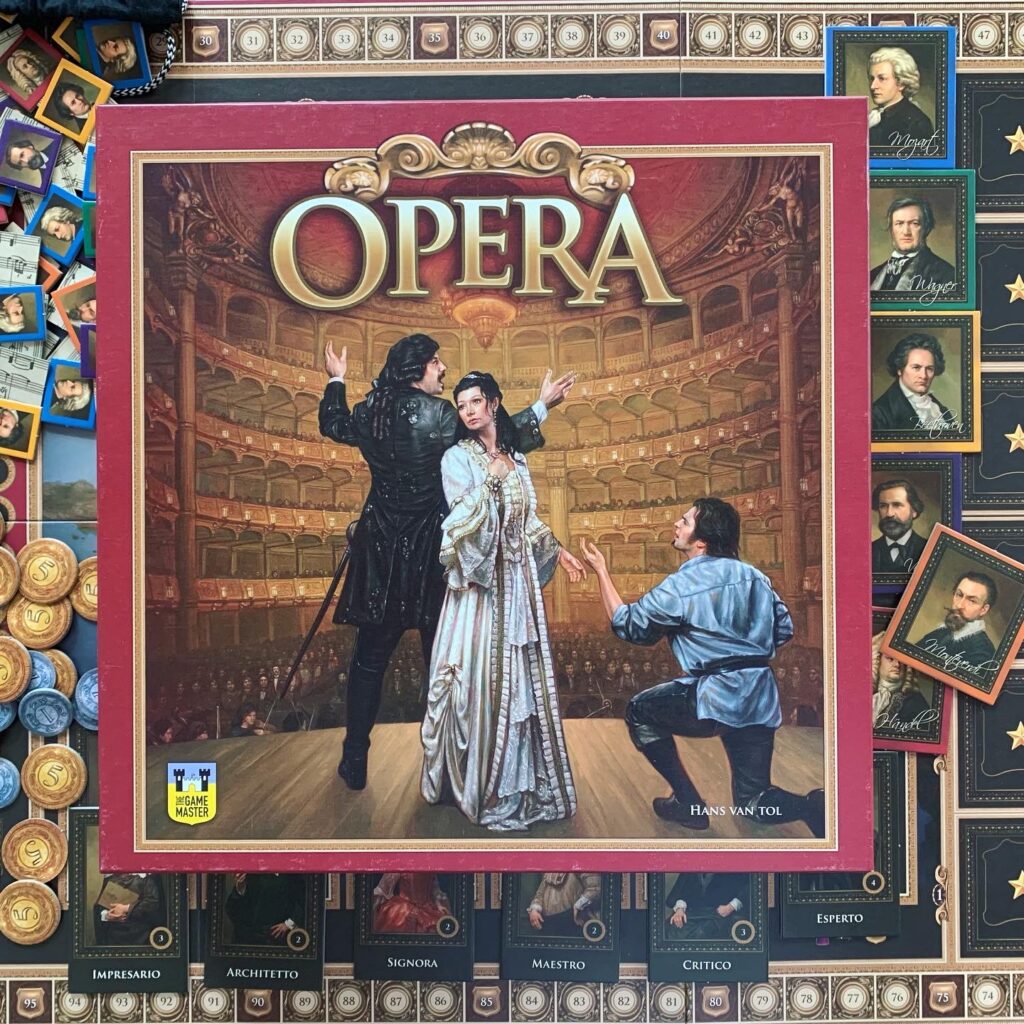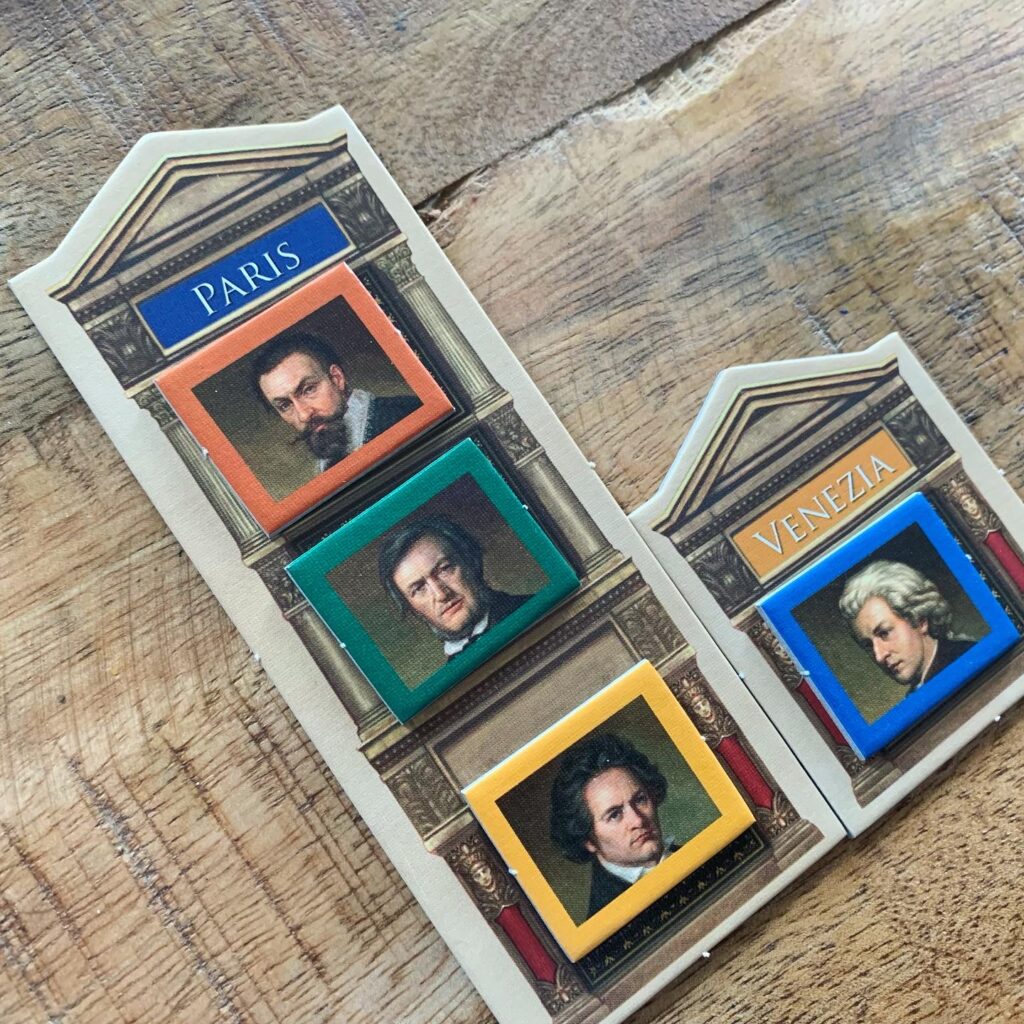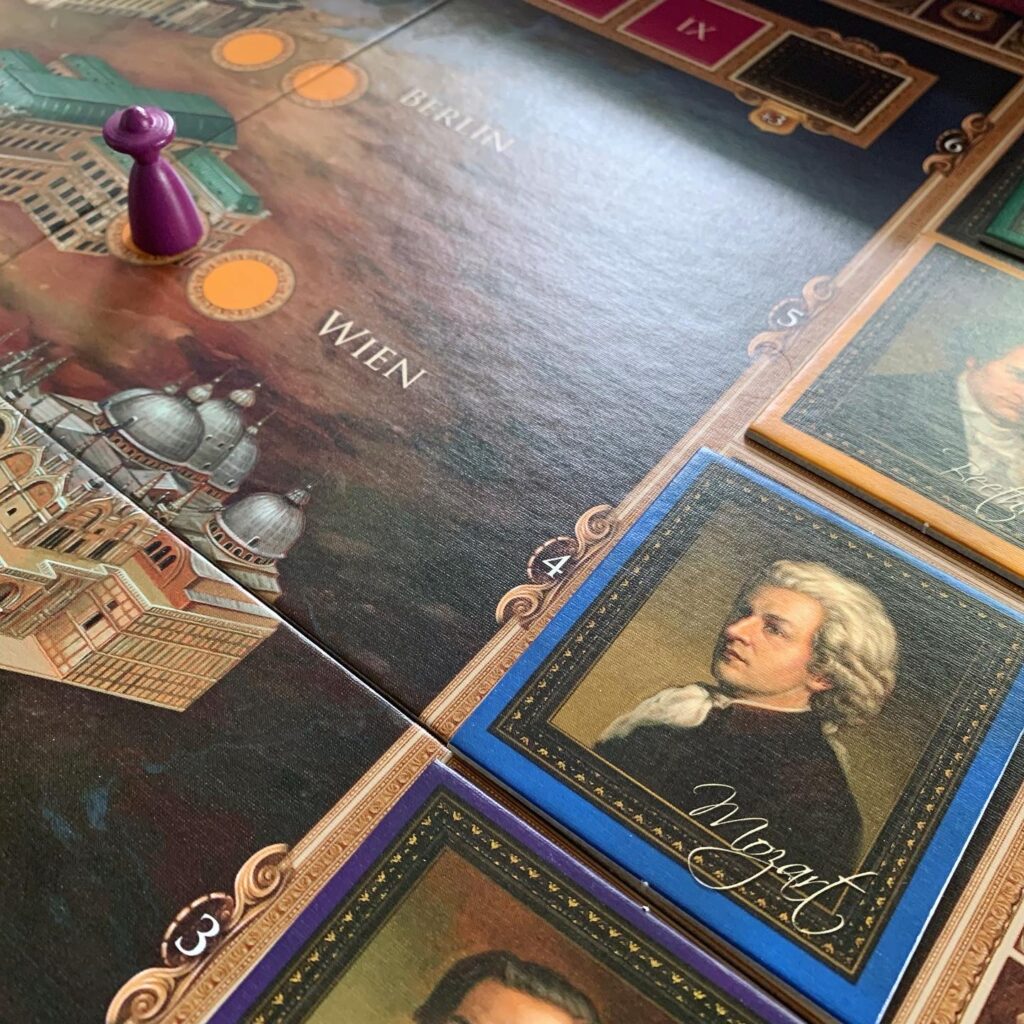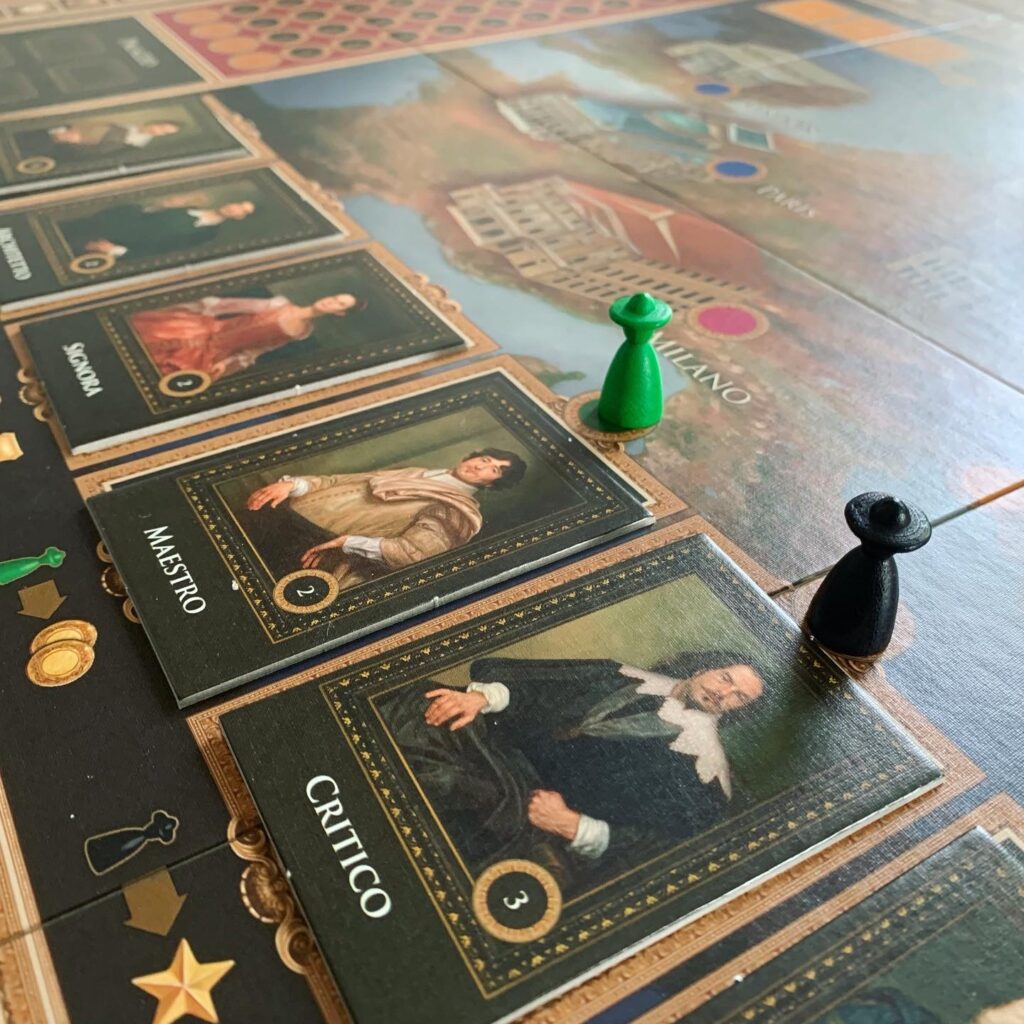Waan je als een heuse Mozart van de bordspellen en vergaard eeuwige roem! Breng tijdens drie tijdperken van de opera (de Barok, de Klassieke Tijd en de Romantiek) prachtige muziekstukken aan de man! Koop muziekstukken van bekende componisten zoals Händel, Monteverdi, Mozart, Beethoven, Wagner en Verdi en bouw aan monumentale operahuizen in de mooiste en grootste Europese steden, laat deze stukken uitvoeren door de getalenteerde dirigenten, koren, solisten en orkesten en trek volle zalen in Opera van the Game Master! Laat jij jouw dromen uitkomen als een echte Papageno of kun je beter met je Zauberflöte in een hoekje gaan spelen?

Opzet en doel
Leg het spelbord met het klassieke Europa (het speelbord) klaar samen met de personages (de acties), leg de dukaten en operahuizen binnen handbereik en jullie zijn klaar om te spelen. In Opera gaan jij en jouw tegenspelers strijden om eeuwige roem. Jullie gaan wereldberoemde muziekstukken van bekende componisten kopen en deze opera’s uitvoeren in operahuizen die jullie zelf gaan bouwen in Parijs, Londen, Berlijn, Wenen, Venetië en Milaan. Roem krijg je door publiek aan te trekken en de meest prestigieuze opera’s uit te voeren in de grootste zalen. Hoe vergaar je roem, koop je muziek en bouw je operahuizen? Met veel geld uiteraard, maar gelukkig krijg je hierbij een beetje hulp.
Spelverloop
Elke ronde bepalen spelers wat hun budget voor de huidige ronde is. Spelers zetten hiervoor hun vergaarde inkomsten in. Telkens mag speler die het meeste budget beschikbaar heeft, als eerste een actie uitvoeren (het inhuren van de beschikbare personages). Tijdens de ronde eten spelers langzaam hun budget op. Welke acties kunnen spelers uitvoeren?

Door de Architetto in te huren, kunnen spelers nieuwe operahuizen bouwen of hun operahuizen met nieuwe zalen uitbreiden. In eke zaal kunnen spelers 1 muziekstuk uitvoeren. Nieuwe stukken kan men kopen via de Impressario. Stukken van populaire componisten zijn uiteraard duurder, maar populariteit is een wispelturig gegeven. De Critico met zijn recensies over een opera de carrière van een bepaalde componist, en dus diens populariteit, beïnvloeden.
Met de Maestro, een beroemde dirigent waar het publiek speciaal voor afreist, kunnen spelers het inkomen van de voorstellingen in een stad verdubbelen. De speler verplaatst hiervoor de Maestro pion op het spelbord naar de desbetreffende stad. Dankzij de Signora kun je muziekstukken op het Palazzo laten uitvoeren en dankzij de aanwezigheid van een Esperto in een stad kunnen spelers veel extra punten scoren, maar wel voor een hoge prijs.
Na een ronde ontvangen spelers inkomsten voor hun voorstellingen en hoeveelheid zalen. Hoe meer publiek, hoe meer geld. Na elke drie rondes worden er punten gescoord op basis van de opera’s die momenteel in jouw grote zalen worden uitgevoerd. De huidige roem van een componist (populariteit) bepaald hoeveel punten spelers ontvangen. Zorg er dus voor dat je op de juiste momenten de juiste muziekstukken laat uitvoeren!


Conclusie
Opera is een zeer vermakelijk en thematisch, economisch spel waarbij spelers als het ware bieden om acties te mogen uitvoeren. Door hoger te budgetteren, mag je eerder acteren, maar mogelijk minder geld uitgeven aan de acties zelf en hierdoor minder operahuizen bouwen of nieuwe muziekstukken kopen. Je moet slim spelen om de meeste roem te ontvangen!

EN: Become the Mozart of board games and achieve eternal fame! Produce beautiful music pieces during three opera eras (Baroque, Classical and Romantic periods)! Buy music pieces of famous composers such as Händel, Monteverdi, Mozart, Beethoven, Wagner and Verdi and build monumental opera houses in the most beautiful and biggest European cities. Have these pieces performed by the talented conductors, choirs, soloists and orchestras and lure in the crowds in Opera by the Game Master! Can you make your dreams come true as a real Papageno or would you be better off playing your Zauberflöte in a corner?
Setup and goal
Lay out the game board with classic Europe (the game board) together with the characters (the actions), place the ducats and opera houses within reach and you are ready to play. In Opera, you and your opponents will compete for eternal glory. You will buy world-famous music by famous composers and perform these operas in opera houses that you will build in Paris, London, Berlin, Vienna, Venice and Milan. Fame is gained by attracting audiences and performing the most prestigious operas in the largest opera halls. How do you gain fame, buy music and build opera houses? With a lot of money, of course, but luckily you’ll get a little help.
How the game goes
Each round, players determine their budget for the current round. Players use their accumulated income to do this. Each time, the player with the most budget can perform an action first (hiring the available characters). During the round, players slowly eat up their budget. Which actions can players perform?
By hiring the Architetto, players can build new opera houses or expand their opera houses with new halls. In each hall, players can play 1 music piece. New pieces can be bought via the Impressario. Pieces by popular composers are naturally more expensive, but popularity is a fickle thing. The Critico with his reviews of an opera can influence the career of a certain composer, and thus his popularity.
With the Maestro, a famous conductor for whom the public will travel all over Europe, players can double the income of the performances in a city. To do this, the player moves the Maestro pawn on the game board to the corresponding city. Thanks to the Signora, music can be performed at the Palazzo, and thanks to the presence of an Esperto in a city, players can score a lot of extra points, but at a high price.
After a round, players receive income for their performances and the number of halls. The more audience, the more money. After every three rounds, points are scored based on the operas currently being performed in your major halls. A composer’s current fame (popularity) determines how many points players receive. So make sure you have the right pieces of music performed at the right times!
Conclusion
Opera is a very entertaining and thematic, economic game where players bid to be allowed to perform actions. By budgeting higher, you can act sooner, but possibly spend less money on the actions themselves and therefore build fewer opera houses or buy new music pieces. You have to play smart to get the most fame!



